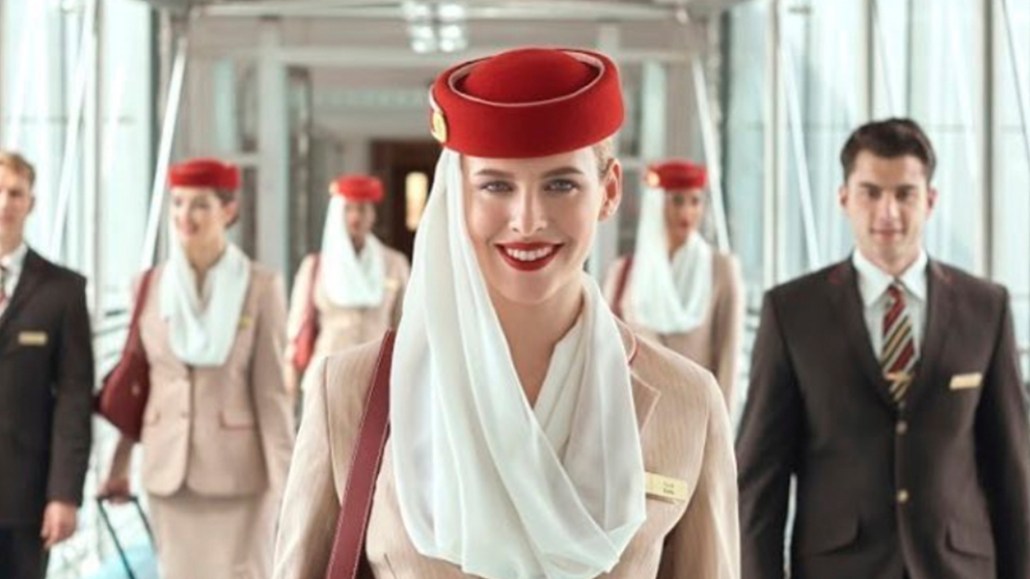Secure your place at the Digiday Media Buying Summit in Nashville, March 2-4

Maybe chatbots can jazz up regular old display ads.
Emirates Vacations, the tour operating arm of Emirates airline, is using artificial intelligence for a chatbot that lies within display ads. The ads allow people to ask travel and trip questions and receive answers immediately within the ad unit. But the company believes AI can be impactful for another application: breaking down additional friction points when it comes to search. The chatbot will recommend destinations and vacation packages based on the context of users’ questions, the content on the site it appears on and Emirates Vacations’ inventory. For instance, if Emirates Vacations doesn’t have a hotel in Toronto, the chatbot won’t suggest a hotel in Toronto. “Explore the world without leaving the page,” the ads read.
“For us, it’s about looking at the customer journey and removing as many friction points as we can,” said Ailsa Pollard, svp of Emirates Vacations, which worked with WayBlazer on the execution.
Emirates Vacations began testing the ads in a 30-day campaign starting at the end of December. The ads ran on sites like The New Yorker, Lonely Planet, Time and Smithsonian in major cities across the U.S. At the end of the 30 days, Emirates Vacations saw an 87 percent lift in engagement compared to its traditional click-through ads, according to Pollard. Emirates Vacations tested 550,000 impressions for the new chat ad format and compared those to the same number of impressions for its traditional display format. Emirates Vacations wouldn’t share any metrics around engagement for its original display ads, only that it plans on continuing using the enhanced version.
Right now, the chat ads advertise four destinations: the Maldives, Bangkok, Milan and the Seychelles. So, if a user types in a general question about where they should go on vacation, the chat ad will recommend travel packages to these locations. The ads are also strategically placed against articles that reference these locations. For instance, Emirates Vacations ran one of its chat ads on People.com next to an article about singer Jordin Sparks visiting the Maldives.

Pollard also said these chat ads help to “weave new life into traditional display ads.” Traditional display ads have long played a role in consumer annoyance with online advertising, and many brands are looking into ways they can provide more value to users. Travel brands especially have to pay attention to user experience, Pollard said.
“Travel is really all about the experience,” said Pollard. “We see AI as a way we can add more relevance to the consumer journey and provide better responses.”
More in Marketing

Future of Marketing Briefing: AI’s branding problem is why marketers keep it off the label
The reputational downside is clearer than the branding upside, which makes discretion the safer strategy.

While holdcos build ‘death stars of content,’ indie creative agencies take alternative routes
Indie agencies and the holding company sector were once bound together. The Super Bowl and WPP’s latest remodeling plans show they’re heading in different directions.

How Boll & Branch leverages AI for operational and creative tasks
Boll & Branch first and foremost uses AI to manage workflows across teams.








